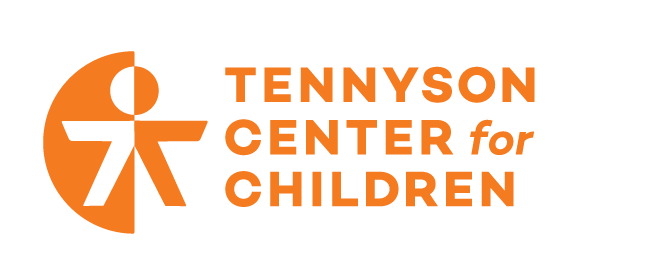Tennyson Introduces A New Trauma-Informed Care Model
As we start a new school year, Tennyson’s goal is to be wholly trauma-informed in all aspects of treatment and education. Tennyson started implementing trauma-informed care as early as 2018, but we aim to embed a more useful model across the entire organization. Specifically, this approach will provide an assessment process called “brain-mapping” to determine the types of interventions best suited for each individual child, and it will better support students in our School and Day Treatment program with new classroom-based interventions. Read more about how your investments will help launch this model as Tennyson kids return to their classrooms!
Trauma-Informed Care Defined
Trauma results from an event or a set of circumstances that is experienced as physically or emotionally harmful and that has lasting adverse effects on the individual’s functioning and wellbeing. This definition is known as the three E’s of trauma. Most kids served by Tennyson have experienced some form of trauma. That trauma can be neglect, physical abuse, exposure to domestic violence, exposure to drugs in utero, a disrupted adoption, or moving from foster home to foster home, never experiencing a loving and stable family. Kids with these lived experiences are best served by an agency that is trauma-informed. An organization that is trauma-informed:
- Realizes the widespread impacts of trauma and understands potential paths to healing;
- Recognizes the signs and symptoms of trauma in clients, families, staff, and all others involved with the organization;
- Responds by fully integrating knowledge about trauma into policies, procedures, and practices; and
- Actively seeks to to resist re-traumatization.
Instead of asking “What’s wrong with you?,” trauma-informed approaches ask “What happened to you?”, reflecting a shift from blaming the individual for their behaviors towards seeking to understand their experience. The underlying belief is that a person’s presenting symptoms are in fact their individual adaptations for functioning based on their traumatic experiences.
The Neurosequential Model
After reviewing the available trauma-informed care models and the needs of Tennyson kids and families, we selected the Neurosequential Models of Therapeutics and Education (NMT and NME). These well-known and respected models were developed by Bruce Perry, an internationally renowned child psychiatrist and researcher, Principal at the Neurosequential Network, and Founder of the ChildTrauma Academy. His research examines the why behind a person’s traumatic adaptations through neuroscience, and these models apply that work in a meaningful way for children and families.
NMT will provide a new assessment process whereby brain-mapping will be completed to inform a child’s needs at the treatment and intervention level. NME will further identify educational and classroom-based interventions for each child and will provide training to teachers and other direct care staff. These models also incorporate the six key principles of trauma-informed care developed by the Substance Abuse and Mental Health Services Administration (SAMHSA).
- Safety: Throughout the organization, staff and the people they serve feel physically and psychologically safe.
- Trustworthiness and Transparency: Decisions are made with transparency with the goal of building and maintaining trust with clients and family members.
- Peer Support: There are opportunities for peer support both for clients and staff. Peer support and mutual self-help are vehicles for establishing safety and hope, building trust, enhancing collaboration, serving as models of healing, and maximizing a sense of empowerment.
- Collaboration and Mutuality: Importance is placed on partnership and the leveling of power differences between staff and clients. This demonstrates that healing happens in relationships and in the meaningful sharing of power and decision-making.
- Empowerment, Voice, and Choice: Individuals’ strengths and experiences are recognized and built upon; clients are supported in building self-advocacy skills; staff are facilitators rather than controllers of recovery.
- Cultural, Historical, and Gender Issues: The organization actively moves past cultural biases and stereotypes, leverages the healing value of traditional cultural connections, and recognizes and addresses historical trauma.
As a first step towards implementing this model, core teams will be trained in NMT and NME starting in September! We look forward to sharing our progress and the impact of these changes for kids coming to Tennyson to heal.
Your Investment Makes This Possible
Your investment directly supports a trauma-informed approach, which includes resources for staff training, the development of safe facilities, and the creation of peer support. Make a gift today to ensure every child at Tennyson finds a path to healing.





